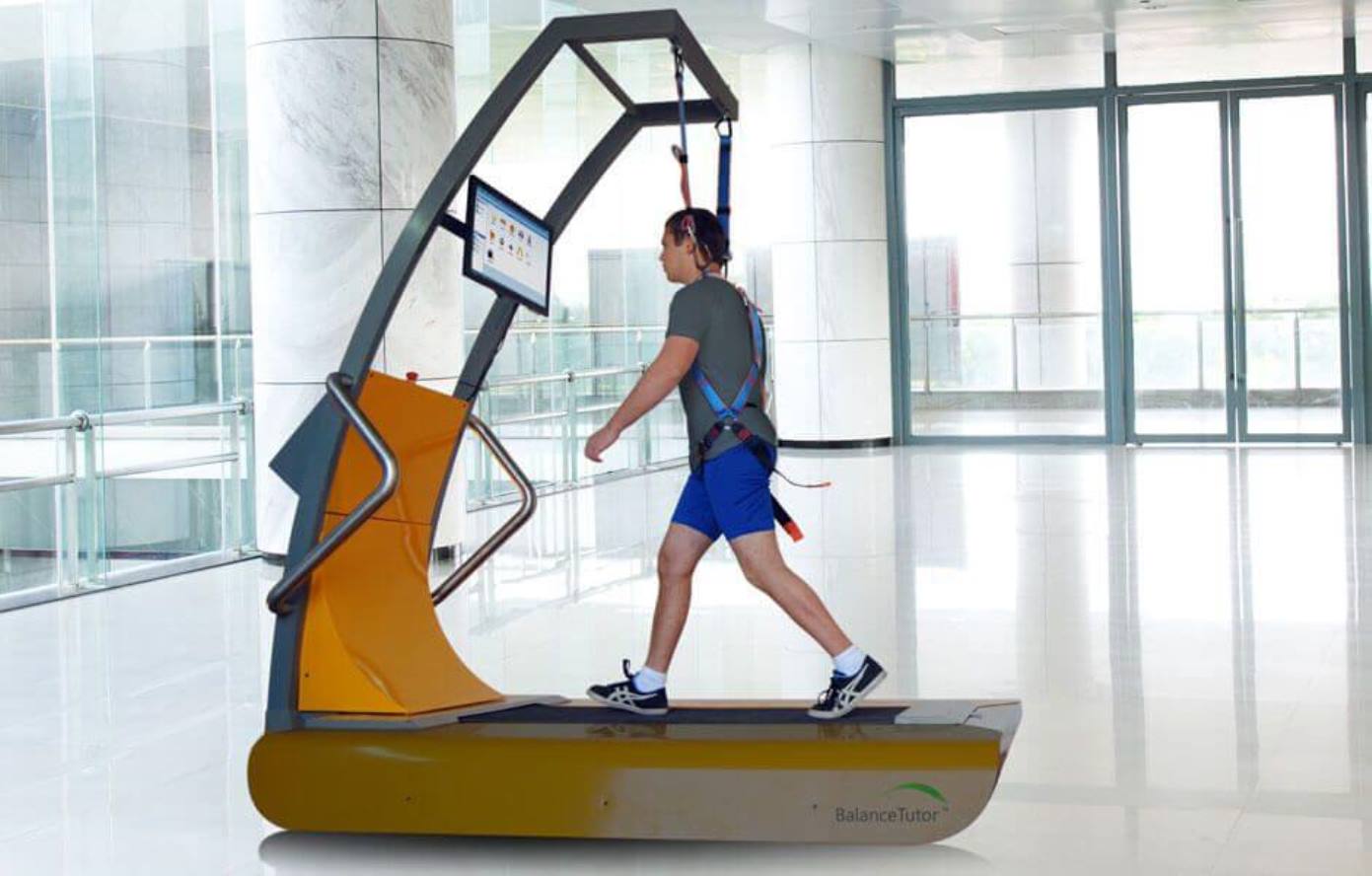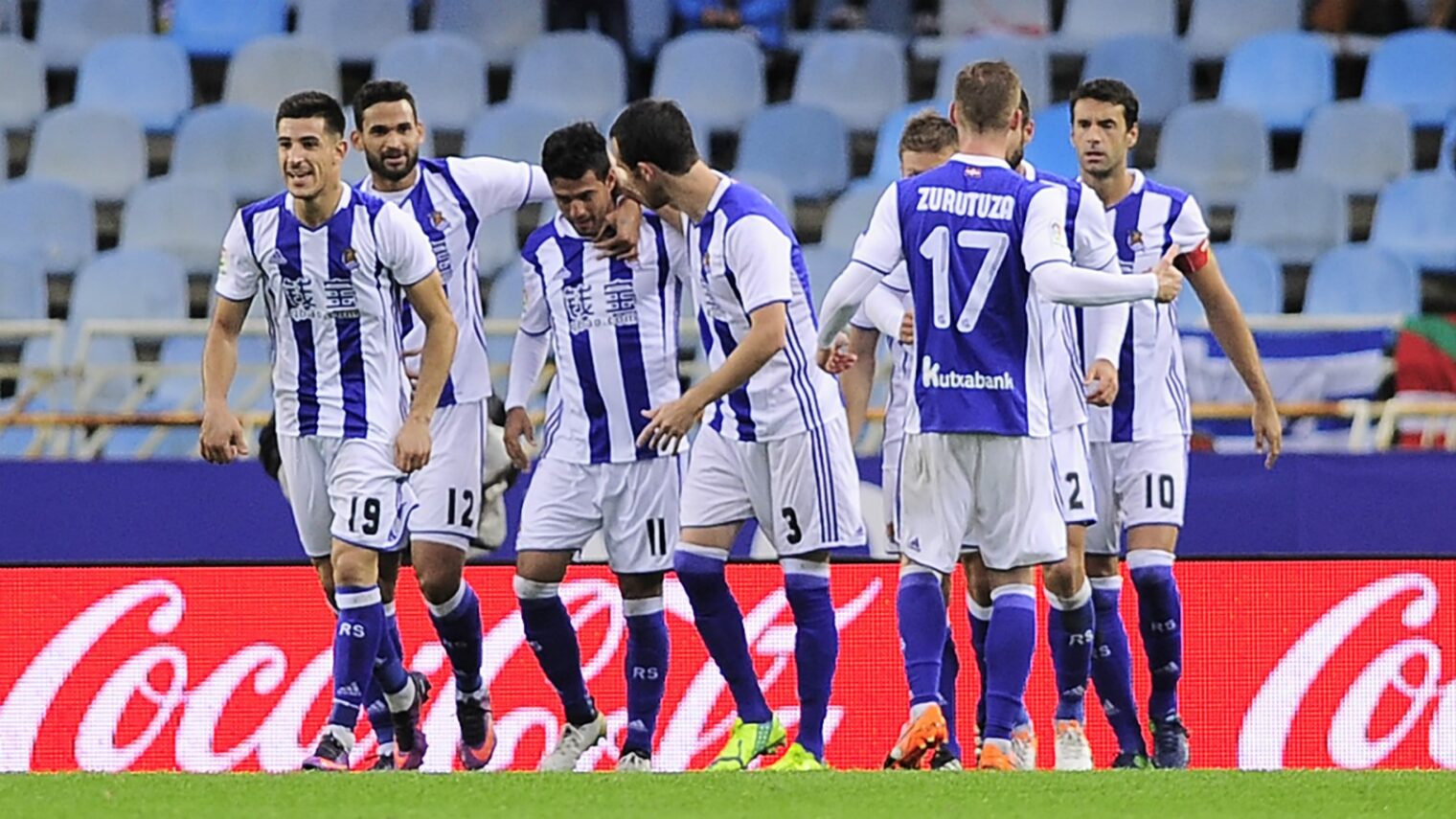It looks like a high-tech treadmill, something you might see in the exercise room at your local gym. But step on and get ready for a walk that deliberately tries to knock you off balance. The treadmill jolts to the left, then to the right; it stops and starts.
That’s all on purpose. The treadmill – called BalanceTutor – is not some sort of mini-roller coaster ride but a serious rehabilitative technology developed in Israel that’s now been adopted by the Real Sociedad football (soccer) team in Spain.
BalanceTutor aims to help players improve their balance and dexterity, especially after an injury.
That’s a big deal for Real Sociedad: A player becomes injured every two matches, explains José Manuel Gonzales de Suso, a sports medicine specialist working with the team.
“The average for each of the club’s teams is between two to three players injured per day,” he says. That adds up to “around 900 days of sickness and leave per team and per season. Playing soccer places high demands on the cardiovascular and locomotor systems.”
BalanceTutor uses a patented 4D treadmill, numerous power and movement sensors and optional motivational video games. Click on the video below to see the BalanceTutor in action at Real Sociedad.
Traditional rehabilitation is based on self-initiated “proactive training,” explains Prof. Itshak Melzer, head of the Recanati School for Community Health Professions at Ben-Gurion University of the Negev and director of the Schwartz Movement Analysis & Rehabilitation Laboratory.
The BalanceTutor’s “robotic device trains the reactive responses, such as the corrective injury-preventing reflex-like responses to a slip or other conditions that unexpectedly displace the balance and equilibrium; with the emphasis being on the unexpected,” Melzer says.
Melzer developed BalanceTutor at Ben-Gurion University with Prof. Amir Shapiro, director of the Robotics Laboratory in the university’s department of mechanical engineering.
Shapiro had a personal interest in the product the two eventually built: When he was 31 years old, he slipped in his garden and broke his spine. “I have four screws and a metal plate connecting my head to my body as befitting a professor of robotics,” he jokes.

From seniors to sports
BalanceTutor’s original target audience was seniors and individuals who had suffered a stroke. BalanceTutor would help get them walking safely again and train them to prevent future falls. Seniors also represent a market opportunity: One in three people over the age of 65 sustains a major fall and in 20 percent of cases the injuries can have permanent effects.
But as often happens in products that begin in academic research, “once the product was commercialized new opportunities opened up including sports,” said Zafrir Levi, vice president of business development at BGN Technologies, the university’s technology commercialization company.
In 2014, BGU licensed BalanceTutor to Meditouch, a privately held company in Netanya established in 2004 to distribute physical rehabilitation systems to hospitals, clinics and for home use. Other Meditouch products include HandTutor, ArmTutor and LegTutor. BalanceTutor fit right in to the product mix.
If you’re wondering how a treadmill that is designed to knock users off balance can be safe, look up: Every patient is connected to a kind of Zip line from above, which measures responses but also prevents falls during the training.

Each patient receives a personalized program. The goal is to shorten rehabilitation periods and avoid relapses. If Real Sociedad can do so, it will be worth a rally of extra goals.
RealSociedad has been using BalanceTutor since November 2016.
For more information, click here.

















